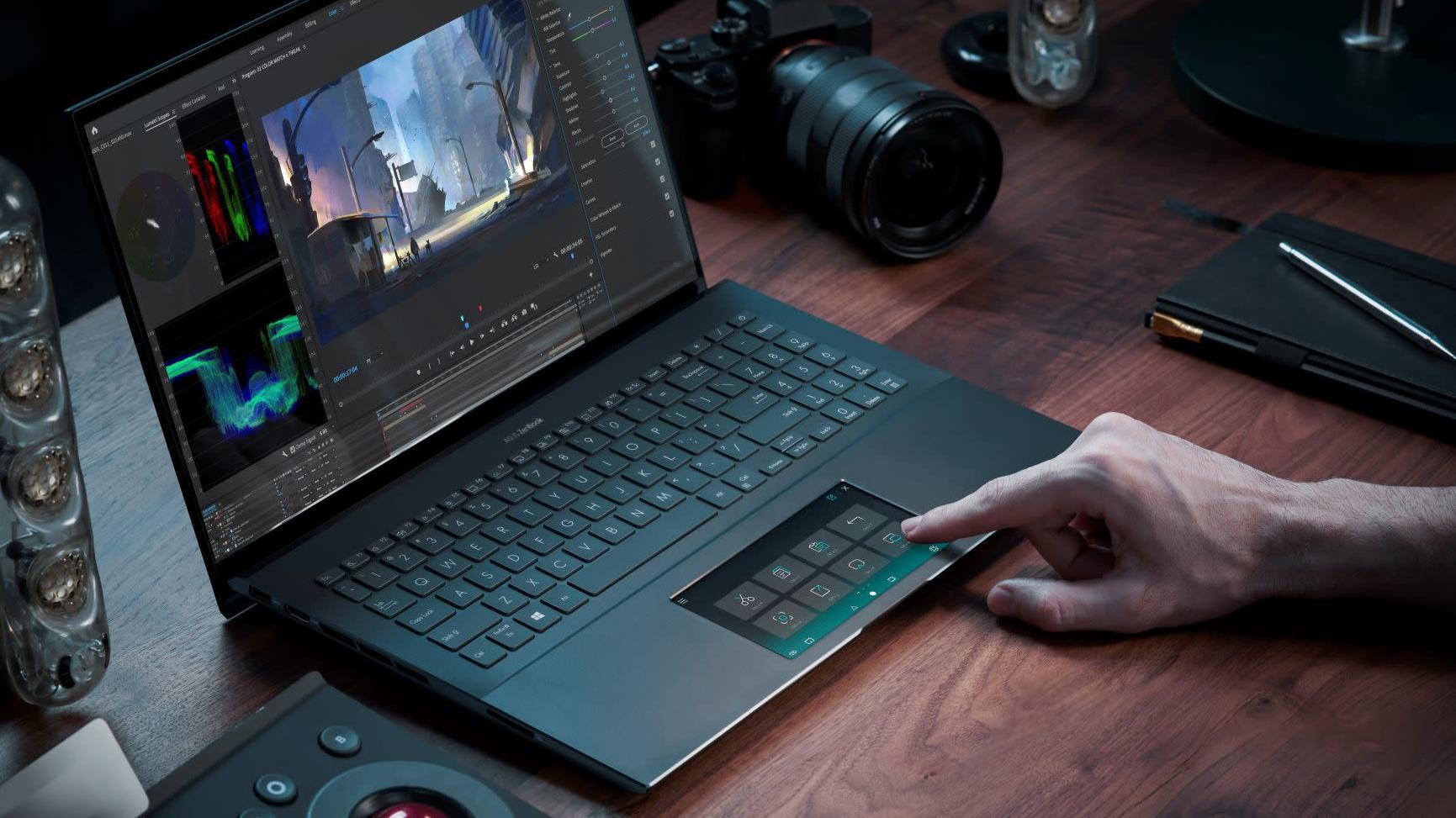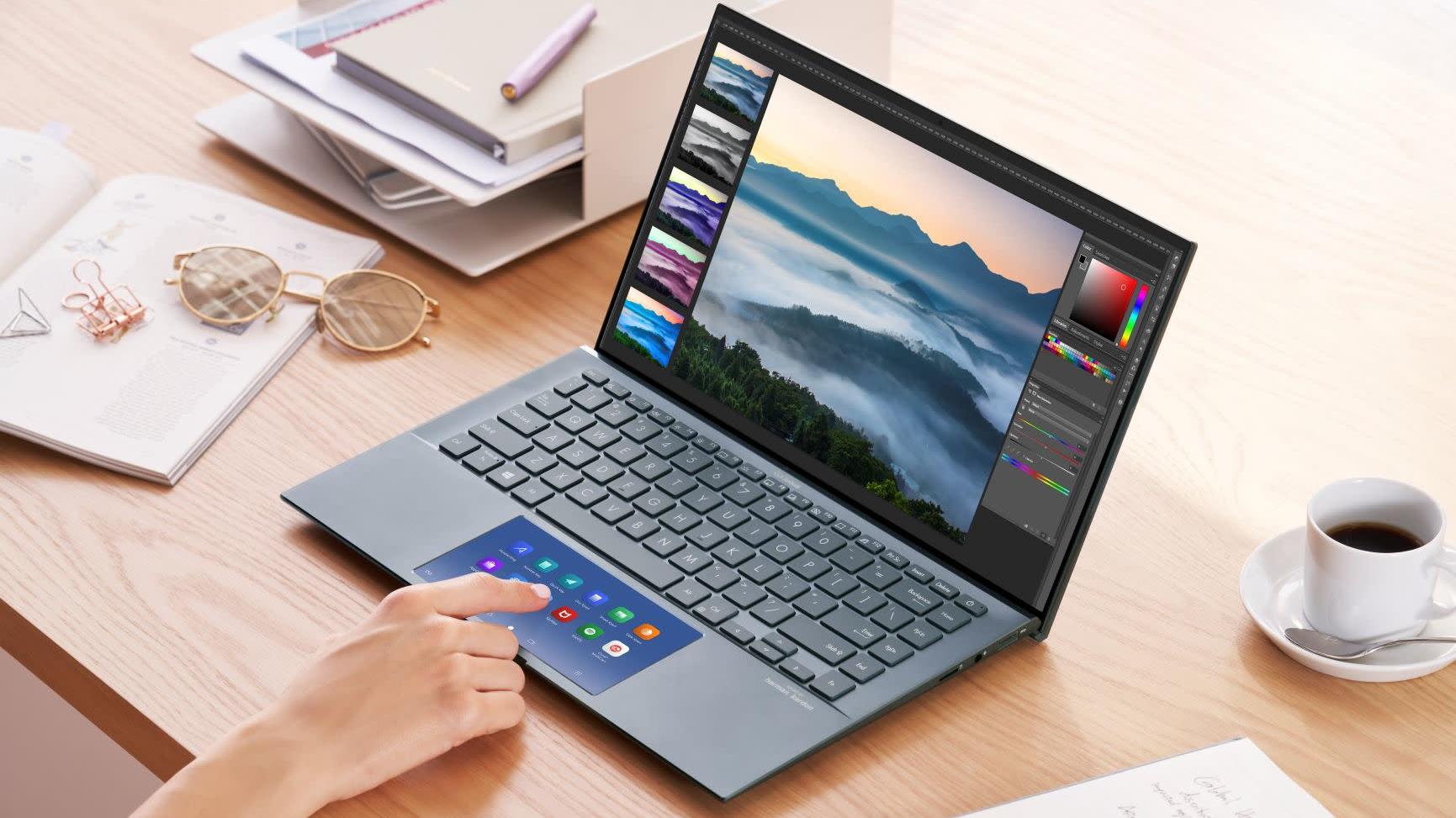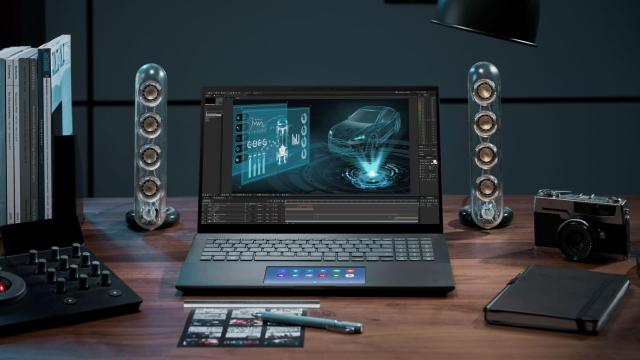While Asus isn’t quite ready to announce any new gaming notebooks, the company has a boatload of new productivity-minded laptops on the way, with two of them featuring vivid OLED displays.
Equipped with new Intel 11th-gen CPUs (or 10th-gen in the case of the new ZenBook Pro 15), Wi-Fi 6, and Thunderbolt ports, Asus’ new notebooks are built to handle both working from home or remote learning with ease, with each system offering a few twists to best suit your needs. But the real eye-grabbing feature on a couple of these new systems are a range of OLED displays that all boast 100% coverage DCI-P3 colour space, super-high contrast ratios, Vesa HDR 500 True Black certification, and Pantone-validated colour accuracy.
Featuring a 15.6-inch 4K OLED touchscreen and support for up to a 10th-gen Intel Core i7 chip, 16GB of RAM, 4TB of PCIe storage, and an Nvidia GTX 1650 Ti GPU, the ZenBook Pro 15 is easily the most powerful of the bunch. And if that’s still not enough speed, you can also opt for a PCIe SSD with 32GB of Intel Optane Memory H10.

Designed for content creators who need a powerful but still relatively slim system for working on the go, the new ZenBook Pro 15 (UX535) also comes with a secondary 5.65-inch screen below its keyboard that doubles as both an extra display or a glass-covered touchpad.
And as you’d expect from a machine designed for tasks like video editing, the ZenBook Pro 15 comes with a healthy selection of ports, including one USB-C port with Thunderbolt 3, one USB 3.2 Type-A port, a full-size HDMI port, an SD card reader, and a headphone jack.

However, if you don’t need something quite so beefy and instead prefer something with better flexibility, Asus has also announced the new ZenBook Flip S (UX371), which Asus claims is the world’s thinnest convertible with an OLED screen. Weighing just 1 kg and measuring 0.54 inches thick, the ZenBook Flip S still makes room for a 13.3-inch 4K OLED touchscreen (or a regular IPS LCD if you want to save some money) with full stylus support.
Inside, the ZenBook Flip S lacks a discrete GPU, but it should still have strong performance thanks to an 11th-gen Core i7 CPU, 8GB or 16GB of RAM, a range of HDD and SSD storage options, and even a built-in IR cam for Windows Hello. You get two USB ports with Thunderbolt 4, along with a third USB 3.2 Type-A port for extra connectivity too. And in place of the ScreenPad on the ZenBook Pro 15, the ZenBook Flips has a touchpad that at the touch of a button can turn into a touch-sensitive number pad (it’s Asus’ NumberPad 2.0 to be precise).

Alternatively, if you don’t care so much for OLED, Asus has three other new laptops with more traditional LCD screens. There’s the ZenBook S (UX393), which is basically a clamshell version of the ZenBook Flip S minus the OLED screen. The ZenBook S also has a slightly taller 3:2 3300 x 2200 NanoEdge display, which should make it a bit better for general work and productivity situations, along with a built-in microSD card reader in case you need to quickly transfer pics or video from a digital camera.
Meanwhile, if you’re in the market for a 14-inch system, there’s the new ExpertBook B9, which Asus says is one of the world’s lightest 14-inch business laptops, and the ZenBook 14 (UX435), which is a blend between the ZenBook Pro 15 and the ZenBook S.

Like the ZenBook Pro 15, the ZenBook 14 has a built-in ScreenPad, but instead of a bigger, more power-hungry GTX 1650 GPU, it features an Nvidia MX450 GPU with 2GB of vRAM. This should make it a good option for someone who might want to dabble in video editing or a bit of light gaming, but wants something a bit easier to carry around than the four pound ZenBook Pro 15. The 14-inch model weighs in at less than 1 kg.
Unfortunately, Asus has yet to provide official pricing info on any of these laptops, but hopefully we’ll know more closer to their release dates, which are slated for sometime in October and early November.
